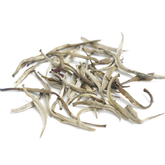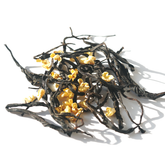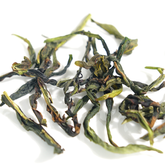Does Tea Contain Electrolytes? And the Beneficial Components of Tea
Research from tea chemistry has found that tea does contain some electrolytes, but it is important to note that they are in relatively low amounts. Electrolytes are ions that conduct electricity when dissolved in water, such as sodium, potassium, calcium and magnesium. The exact amount of these electrolytes can vary in different types of tea. A study on the mineral content of different teas showed that the concentration of electrolytes in tea is closely related to specific growing conditions, soil types, and processing methods. For example, the study showed that teas brewed with mineral-rich water had significantly higher levels of electrolytes than teas brewed with deionized water. However, the electrolyte content of tea is usually not as high as that of sports drinks or electrolyzed water, so you may need to choose other beverages if you need to replenish your electrolytes. In China, the people usually use tea as a daily drink to quench their thirst

How to effectively replenish electrolytes?
Drinking tea is not a very good way to replenish electrolytes. Effective ways to replenish electrolytes include drinking sports drinks, eating electrolyte-rich foods such as bananas, and dairy products. Making homemade drinks, using supplements, etc. From an efficiency point of view, the various sports drinks available in supermarkets replenish electrolytes much better than tea and are very easy to buy. From a compositional standpoint, the balance of electrolytes and water is critical to body function, and moderate intake promotes muscle health, improves athletic performance, and supports heart function.
What's in Tea and the Benefits
Tea polyphenols are the most abundant component of tea, at about 15-30% (dry weight). Tea polyphenols are the main antioxidant component of tea and have anti-inflammatory, anti-cancer and cardiovascular properties. According to a study in the Journal of Food Science and Nutrition, tea polyphenols have a significant positive impact on cardiovascular health, with tea polyphenols helping to lower cholesterol levels and improve blood sugar control. Next is the caffeine content of tea, which ranges from about 2-5% by dry weight, depending on the type of tea (e.g., about 30-50 mg/cup for green tea and 40-70 mg/cup for black tea). Caffeine also has some energizing effects. Moderate intake helps to increase metabolic rate. Amino acids, content: about 1-3% by dry weight, mainly L-theanine, which has calming and relaxing effects, improves sleep quality and helps relieve stress. A study published in the Journal of Nutrition found that L-theanine helped reduce anxiety and improved cognitive function. That's why, although tea contains caffeine, it doesn't give you the same hyperactive feeling as coffee after drinking it, and drinking tea gives you a sense of calm and serenity. Natural tea also contains many other beneficial components, such as minerals and volatile compounds that give it a rich aroma and flavor. Tea is also high in fiber, which promotes intestinal health and may help reduce the risk of certain digestive disorders. The chemical composition of tea has a variety of positive effects on human health, and the Chinese have been drinking tea for thousands of years since ancient times, integrating it into the daily lives of every family. By consuming the tea polyphenols, caffeine, amino acids and minerals found in tea, you can support cardiovascular health, improve concentration, relieve stress and promote overall well-being. The health benefits of tea are further supported by relevant research and institutional testimonials, and NPTEA highly recommends that you consume pure, natural Chinese loose teas. These teas have no added flavors, colors, or sugars and are essentially calorie-free, making them the healthiest natural beverage available.
Natural tea also contains many other beneficial components, such as minerals and volatile compounds that give it a rich aroma and flavor. Tea is also high in fiber, which promotes intestinal health and may help reduce the risk of certain digestive disorders. The chemical composition of tea has a variety of positive effects on human health, and the Chinese have been drinking tea for thousands of years since ancient times, integrating it into the daily lives of every family. By consuming the tea polyphenols, caffeine, amino acids and minerals found in tea, you can support cardiovascular health, improve concentration, relieve stress and promote overall well-being. The health benefits of tea are further supported by relevant research and institutional testimonials, and NPTEA highly recommends that you consume pure, natural Chinese loose teas. These teas have no added flavors, colors, or sugars and are essentially calorie-free, making them the healthiest natural beverage available.
SEE MORE
If you have questions about selecting tea:
Learn-more-about-chinese-tea
If you have questions about the benefits of tea:
Health-benefits-of-chinese-tea
If you have questions about brewing tea:
How-to-brew-loose-leaf-tea






